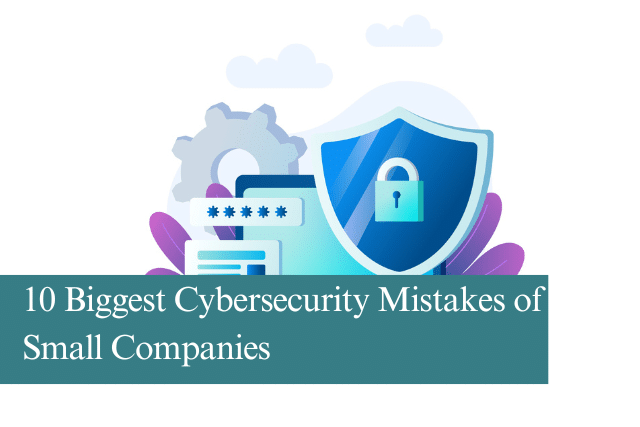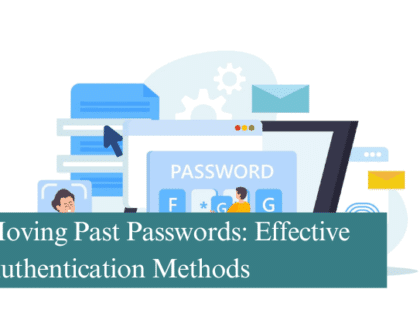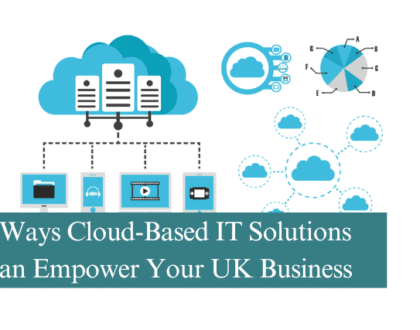
Small businesses are increasingly becoming targets, often because they lack the resources or awareness to implement strong cybersecurity practices. Unfortunately, the consequences of a single attack data loss, financial damage or reputational harm can be devastating for smaller organisations.
Below, we explore the ten most common cybersecurity mistakes small businesses make and how to avoid them.
1. Believing “We’re Too Small to Be Targeted”
This is perhaps the most dangerous misconception. Hackers often view small businesses as easy targets because they tend to have weaker security infrastructures. Cybercriminals use automated tools to scan for vulnerabilities size doesn’t matter. Every business is a potential target.
2. Lack of a Cybersecurity Policy
Many small businesses operate without a clear cybersecurity policy in place. This means employees are often left to make security decisions on their own, which can lead to inconsistent practices and increased risk. A well-documented policy helps guide staff on how to handle sensitive data, report suspicious activity, and follow best practices.
3. Using Weak or Reused Passwords
Weak passwords are one of the easiest ways for hackers to gain access to your systems. Reusing passwords across multiple platforms compounds this issue. Encourage the use of strong, unique passwords, and implement a password manager to help staff manage them securely.
4. Ignoring Software Updates
Outdated software can contain known vulnerabilities that hackers can exploit. Regular updates and patches are essential to close these security gaps. This includes not just your operating systems but all applications, antivirus programmes, and firewalls.
5. Lack of Staff Training
Cybersecurity isn’t just an IT issue it’s a people issue. Phishing emails, social engineering attacks, and careless clicks can all stem from a lack of awareness. Regular training ensures your team knows how to spot threats and respond appropriately.
6. No Multi-Factor Authentication (MFA)
Relying solely on passwords is no longer enough. Multi-factor authentication adds an extra layer of protection by requiring users to verify their identity through a second method, such as a text message or authentication app. Implementing MFA significantly reduces the risk of unauthorised access.
7. Poor Data Backup Practices
Many small businesses don’t back up their data frequently or at all. If ransomware encrypts your files or a system crash occurs, you could lose vital information. Backups should be automatic, regular, and stored offsite or in the cloud for added protection.
8. Using Unsecured Wi-Fi Networks
Allowing staff to connect to company systems via public or unsecured Wi-Fi is a major risk. These networks are vulnerable to eavesdropping and man-in-the-middle attacks. Encourage the use of VPNs (Virtual Private Networks) when working remotely to encrypt traffic and protect sensitive data.
9. Neglecting Mobile Device Security
As more work is done on smartphones and tablets, these devices need the same level of security as desktops. Mobile device management (MDM), encryption, and remote wipe capabilities are essential if a device is lost or stolen.
10. Failure to Prepare for a Breach
Many small businesses operate under the assumption that a breach won’t happen to them until it does. Without an incident response plan, you may lose valuable time figuring out what to do during a crisis. A prepared plan outlines roles, responsibilities, and actions to mitigate damage swiftly.
Protecting Your Business Starts Today
Cybersecurity doesn’t have to be overwhelming. By addressing these common mistakes and proactively improving your defences, you can greatly reduce your risk and protect your business, your customers, and your reputation.
If you’re unsure where to start or want expert guidance tailored to your business needs, we’re here to help.
Need Reliable IT Support? Let’s Talk.
We specialise in helping small businesses strengthen their cybersecurity and IT infrastructure. Whether it’s setting up secure networks, training staff, or monitoring for threats, our team is ready to support you every step of the way.
Contact us to schedule your free initial consultation. Let’s make sure your business is protected before a cyber threat knocks on your door.
Recommended Posts

Moving Past Passwords: Effective Authentication Methods
25th July 2025

Prepare for Windows 10 End of Life: What You Need to Know
18th July 2025

5 Ways Cloud-Based IT Solutions Can Empower Your UK Business
12th July 2025
